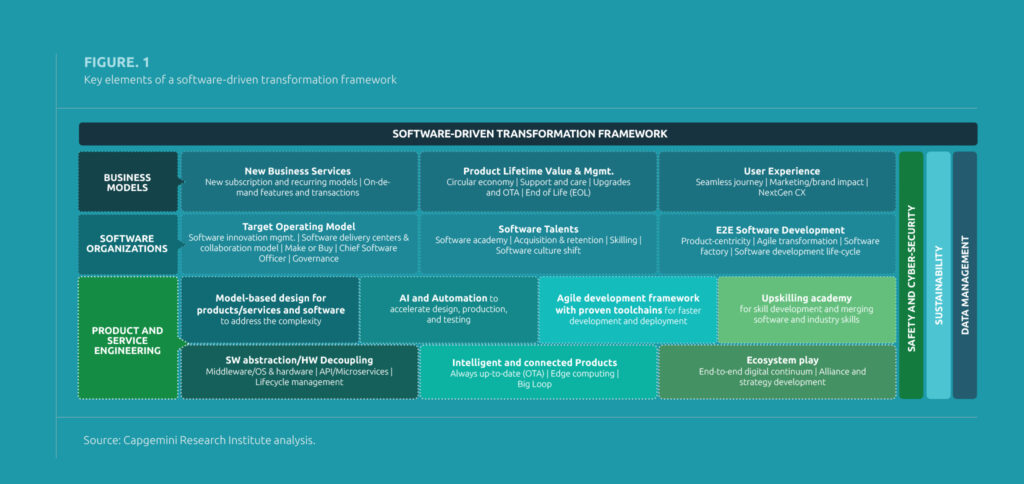Alexandre Audoin, head of global automotive at Capgemini, considers the sustainability credentials of software testing practices
In its research, Capgemini has seen a huge influx of auto makers making moves to shift their operations and investments toward more digital mobility services. It predicted an estimated additional US$50bn is required over the next five years to meet long-term sustainability targets, in addition to the current investment in electric vehicles, autonomous vehicles and digital mobility services. On top of this, automotive companies are coming under intense pressure from stakeholders to make their products and operations more sustainable as they work to meet new regulations set out by directives such as the European Green Deal and the Paris Agreement.
Audoin comments, “It’s not just the hardware that auto makers need to consider the impact of. As vehicles become increasingly smart and connected, the number of software applications associated within them increases. We must remember that IT and technology itself leaves an indelible impact on the environment, so to achieve sustainability in software engineering, product teams have to introduce proactive updates, minimize complexity and pay attention to resources consumed by software.
“Along the software journey – from design to implementation, and then production – a shift left testing with green code reviews can be hugely beneficial as this helps to eliminate wastage with code efficiency, reduce energy consumption and create impact. Machine learning can also be used to predict code defect areas using historic data, thus increasing the effectiveness of reviews, test design and test optimization. Further still, continuous testing in integration with DevOps can measure and report on the carbon footprint of critical business processes. Auto makers can then map out sustainability parameters to validate the energy efficiency of business processes at a transactional level, which in turn will build cost-effective and resilient applications.”
Read our feature exploring the sustainability of digital testing resources in the September 2022 issue of ATTI.


